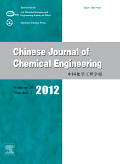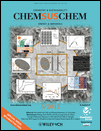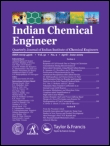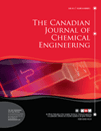
PERIODICA POLYTECHNICA-CHEMICAL ENGINEERING
Scope & Guideline
Pioneering Discoveries in Chemical Science and Technology
Introduction
Aims and Scopes
- Green Chemistry and Sustainable Practices:
The journal emphasizes research on environmentally friendly processes, including the development of green chemical synthesis methods and the use of renewable resources. - Nanotechnology Applications in Chemical Engineering:
There is a strong focus on the synthesis, characterization, and application of nanomaterials in various fields such as catalysis, environmental remediation, and energy storage. - Electrochemical Engineering:
Research on electrochemical processes, including electroanalysis, electrochemical degradation, and the development of electrochemical sensors, is a core area of the journal. - Bioprocess and Biotechnology:
The journal covers advances in bioprocessing technologies, including the production of biofuels, bioplastics, and other bioproducts through microbial fermentation and enzymatic processes. - Material Science Innovations:
Studies focusing on the development and application of new materials, especially composites and polymers, for various industrial applications are prevalent. - Environmental Engineering and Remediation:
The journal includes research on water treatment, waste management, pollution control, and strategies for reducing environmental impact through chemical engineering solutions. - Thermodynamics and Process Optimization:
Papers discussing thermodynamic modeling, process simulation, and optimization techniques for chemical processes are also a significant part of the journal's scope.
Trending and Emerging
- Bio-based and Biodegradable Materials:
Research focused on the development of bio-based polymers and biodegradable materials is on the rise, reflecting a global push towards sustainability and reducing plastic waste. - Advanced Catalysis and Reaction Engineering:
There is an increasing trend in studying advanced catalytic processes, including the use of nanocatalysts and hybrid systems that enhance reaction efficiencies and selectivity. - Artificial Intelligence in Chemical Engineering:
The application of AI and machine learning techniques for process optimization, predictive modeling, and data analysis is gaining popularity, indicating a shift towards smart chemical engineering. - Environmental Nanotechnology:
Emerging studies are focusing on the application of nanotechnology for environmental remediation and pollution control, highlighting innovative solutions to pressing environmental issues. - Renewable Energy Technologies:
Research on renewable energy sources, particularly biofuels, solar energy, and energy storage solutions, is trending as the field seeks to address energy challenges sustainably. - Process Intensification:
There is a growing interest in process intensification techniques that enhance the efficiency and effectiveness of chemical processes, reducing resource consumption and waste generation.
Declining or Waning
- Traditional Chemical Processes:
There is a noticeable decrease in research focused solely on conventional chemical processes without integration of modern technologies or sustainability practices. - Basic Chemical Analysis Techniques:
Research that strictly pertains to fundamental chemical analysis methods, such as basic chromatographic techniques, has seen reduced emphasis as more complex and integrated methods gain traction. - Inorganic Chemical Synthesis:
The focus on purely inorganic synthesis methods has diminished, potentially as researchers shift towards more application-oriented and multidisciplinary approaches. - Static Modeling Techniques:
There is a decline in the publication of studies that rely solely on static modeling approaches, as dynamic modeling and real-time data analysis become more prominent in research.
Similar Journals

Chemical Engineering Journal Advances
Pioneering Open Access Research for a Sustainable Future.Chemical Engineering Journal Advances, published by Elsevier, is a premier open-access journal dedicated to advancing research and innovation in the field of chemical engineering. With its inception in 2020, the journal has quickly established itself as a key player in disseminating high-quality, peer-reviewed articles, boasting an impressive Q1 ranking in Chemical Engineering and related disciplines for 2023. The journal covers a broad spectrum of topics, including industrial processes, environmental chemistry, and innovative manufacturing techniques, making it essential reading for researchers and professionals aiming to stay at the forefront of chemical engineering advancements. With its commitment to open access, Chemical Engineering Journal Advances ensures that groundbreaking research is readily available to the global scientific community, fostering collaboration and knowledge exchange. Situated in the Netherlands, the journal supports its authors with a robust platform for impactful research dissemination, highlighted by a solid position in the Scopus ranks, indicating its influence and relevance in the field.

ChemEngineering
Advancing Chemical Engineering Knowledge for a Sustainable FutureChemEngineering is a prominent open-access journal published by MDPI that has been dedicated to the dissemination of high-quality research in the field of chemical engineering since its inception in 2017. Operating out of Switzerland, this journal addresses a diverse range of topics, including energy production, process optimization, and innovations in materials science, thereby attracting contributions from researchers and professionals worldwide. With an impressive Q2 ranking in Chemical Engineering and Engineering, as well as a Q3 ranking in Energy for 2023, ChemEngineering is positioned as a crucial platform for advancing knowledge in its fields. The journal's commitment to open access ensures that its content is readily available to a broad audience, promoting the free exchange of ideas and fostering collaborations. Researchers, professionals, and students alike benefit from the journal's focus on cutting-edge research, making it an essential resource for anyone interested in the ever-evolving landscape of chemical engineering.

Izvestiya Vysshikh Uchebnykh Zavedenii Khimiya i Khimicheskaya Tekhnologiya
Pioneering Research for a Sustainable Chemical FutureIzvestiya Vysshikh Uchebnykh Zavedenii Khimiya i Khimicheskaya Tekhnologiya is a prominent academic journal dedicated to the fields of chemistry and chemical technology, published by the esteemed IVANOVSKOGO KHIMIKO-TEKHNOLOGI TSHESKOGO INST in the Russian Federation. With an ISSN of 0579-2991 and E-ISSN of 2500-3070, this journal has been a crucial platform since its inception in 1980, showcasing significant advancements and research findings, particularly in its converged periods from 1980, 1982, and 2017 to 2024. The journal is ranked Q3 in Chemical Engineering and Chemistry, reflecting its dedication to quality scholarship. Although open access options are currently unavailable, the journal plays a vital role in disseminating knowledge and fostering collaboration among researchers, professionals, and students in these critical scientific domains. Situated in Ivanovo, Russia, it continues to be a focal point for impactful research, making it an essential resource for those aiming to stay at the forefront of innovation in chemistry and chemical engineering.

Chinese Journal of Chemical Engineering
Connecting Theory and Practice in Chemical Engineering ExcellenceChinese Journal of Chemical Engineering, published by CHEMICAL INDUSTRY PRESS CO LTD, is a premier academic journal dedicated to advancing the field of chemical engineering and related disciplines. With a strong emphasis on innovative research and practical applications, the journal spans a wide range of topics including biochemistry, environmental engineering, and general chemistry. Boasting a commendable impact factor and a consistent presence in Q2 quartiles across multiple categories, it ranks impressively in Scopus, notably positioned in the top percentile of its fields, enhancing its credibility and reach among the scientific community. Published continuously since 1993 and converging towards its 2024 goals, the journal remains committed to fostering sustainable and impactful research. Researchers, professionals, and students alike will find invaluable resources and cutting-edge insights, making the Chinese Journal of Chemical Engineering an essential platform for disseminating pivotal work in the realms of chemical and environmental sciences.

ChemSusChem
Pioneering Research for a Greener FutureChemSusChem is a premier interdisciplinary journal, published by WILEY-V C H VERLAG GMBH, that focuses on the critical fields of Chemical Engineering, Energy, Environmental Chemistry, and Materials Science. Since its inception in 2008, the journal has consistently maintained a Q1 ranking across multiple categories, highlighting its role as a vital resource for researchers and professionals dedicated to advancing sustainable chemical processes and technologies. With an impressive impact factor, it ranks 12th in General Chemical Engineering and is highly regarded within its scopes, indicating the journal's commitment to publishing high-quality, innovative research that addresses global challenges in energy and environmental sustainability. Though it operates on a subscription model, its contributions are essential for those in academia and industry seeking cutting-edge developments in sustainable chemistry. As it approaches its convergence span through 2024, ChemSusChem continues to shape the future of sustainable chemistry, making it a must-read for students, researchers, and practitioners alike.

ACS Engineering Au
Pioneering Pathways to Innovative Engineering PracticesACS Engineering Au, published by the American Chemical Society, is an esteemed open-access journal dedicated to advancements in the field of engineering, encompassing a wide range of interdisciplinary studies that merge principles of chemistry with cutting-edge engineering practices. With an E-ISSN of 2694-2488, this journal aims to disseminate significant and innovative research findings that contribute to the development of sustainable technologies and solutions in various engineering domains. Since becoming an open-access journal in 2021, it has fostered greater accessibility and visibility for researchers and practitioners alike, encouraging collaboration and knowledge sharing across the global community. By providing a platform for high-quality research, ACS Engineering Au plays a pivotal role in shaping the future of engineering disciplines, making it an essential resource for academics, industry professionals, and students who are eager to stay at the forefront of engineering advancements.

Indian Chemical Engineer
Shaping Tomorrow's Chemical Engineers Today.Indian Chemical Engineer, published by Taylor & Francis Ltd, stands as a reputable journal in the field of chemical engineering, encompassing a wide range of topics pertinent to both academia and industry. With an ISSN of 0019-4506 and an E-ISSN of 0975-007X, this journal has been a key resource for researchers and professionals since its inception in 1992, undergoing a significant evolution from 2009 to 2024. Currently ranked in the Q3 category of chemical engineering (miscellaneous) in 2023, it reflects a dedicated commitment to disseminating innovative research and insights within the discipline. The journal is indexed in Scopus, achieving a rank of 148 out of 273, which denotes its growing influence in the field with a 45th percentile placement. Although currently not an open-access publication, it offers valuable content that contributes extensively to the advancement of chemical engineering research and education. Researchers, professionals, and students alike are encouraged to engage with this publication to stay at the forefront of industry advancements and academic discussions.

CANADIAN JOURNAL OF CHEMICAL ENGINEERING
Transforming Ideas into Engineering SolutionsCanadian Journal of Chemical Engineering, published by Wiley, stands as a pivotal platform in the field of chemical engineering, addressing a myriad of topics essential for researchers, professionals, and students alike. With ISSN 0008-4034 and E-ISSN 1939-019X, this journal has been a cornerstone of chemical engineering scholarship since its inception in 1958 and continues to provide valuable insights through its rigorous peer-reviewed articles. The journal is ranked in the Q2 category of the Scopus quartile rankings, reflecting its influence and relevance within the chemical engineering community, with a notable position of #137 out of 273 in the general chemical engineering field. Although it does not offer open access options, its comprehensive coverage of contemporary research and applications solidifies its status as a vital resource for advancing knowledge and innovation in chemical engineering.

Journal of Industrial and Engineering Chemistry
Exploring Sustainable Solutions in Chemical EngineeringThe Journal of Industrial and Engineering Chemistry, published by Elsevier Science Inc, stands as a premier platform since its inception in 1996, dedicated to the dissemination of innovative research in the field of Chemical Engineering. Located in South Korea, this influential journal has established itself with an impressive impact factor and is categorized in the Q1 quartile for chemical engineering (miscellaneous), ranking in the top 12% of its category according to Scopus. With a focus on cutting-edge industrial applications, the journal covers a diverse range of topics including chemical processes, engineering innovations, and sustainable practices, appealing to a broad spectrum of researchers, professionals, and students. Although currently not open access, the journal offers a wealth of resources for advancing knowledge and driving forward the chemical engineering discipline. The converged years from 1996 to 2024 reflect its ongoing commitment to excellence and timeliness in publishing high-quality research.

ENVIRONMENTAL ENGINEERING SCIENCE
Pioneering research for a sustainable future.ENVIRONMENTAL ENGINEERING SCIENCE is a leading journal published by MARY ANN LIEBERT, INC that provides a platform for pioneering research in the fields of environmental chemistry, pollution control, and waste management. With an ISSN of 1092-8758 and an E-ISSN of 1557-9018, this peer-reviewed journal aims to disseminate high-quality scientific studies that address critical environmental challenges. As evidenced by its 2023 category quartile rankings, it holds a notable position at Q3 in Environmental Chemistry and Pollution and Q2 in Waste Management and Disposal, highlighting its relevance and impact in these domains. Spanning over two decades from 1997 to 2024, the journal is dedicated to fostering innovations and promoting rigorous scholarship that can contribute significantly to sustainable environmental practices globally. Authors and researchers are encouraged to engage with this essential resource, which offers Open Access options to enhance the visibility and reach of their work. For those interested in advancing their understanding and practice within the environmental sciences, ENVIRONMENTAL ENGINEERING SCIENCE is an indispensable journal to consider.